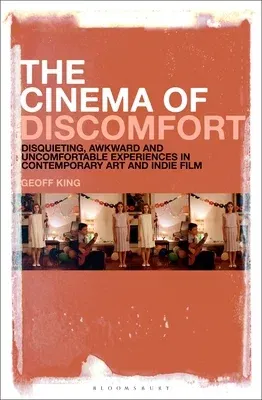How do we understand types of cinema that offer experiences of
discomfort, awkwardness or disquieting uncertainty? This book examines a
number of examples of such work at the heart of contemporary art and
indie film. While the commercial mainstream tends to offer comforting
viewing experiences - or moments of discomfort that exist largely to be
overcome - The Cinema of Discomfort analyses films in which discomfort
is offered in a sustained manner. Cinema of this kind confronts us with
material such as distinctly uncomfortable sexual encounters. It invites
us into uncertain relationships with awkward and sometimes unlikable
characters. It presents us with challenging behaviour or what are
presented as uncomfortable realities. It often refuses information on
which to base judgments. More discomfortingly, cinema of this kind tends
to provoke uncertainty at the level of what emotional responses we are
encouraged to have towards difficult, sometimes controversial,
characters or events.
The Cinema of Discomfort examines a number of case-studies, including
Palindromesby Todd Solondz (US) and Dogtoothfrom Yorgos Lanthimos
(Greece), along with other examples from Austria, Sweden, the UK, the US
and Germany. Offering close textual analysis of the manner in which
discomfort is generated, it also asks how we should understand the
appeal of such work to certain viewers and how the existence of films of
this kind can be explained, as products of both their socio-cultural
context and the more particular institutional realms of art and indie
film.

